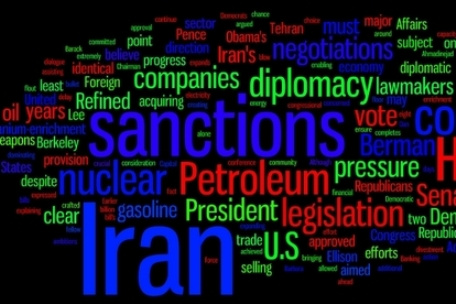Sanctions Won't End Iran's Nuclear Program

With the recent European ban on importing Iranian oil, the West has ratcheted up its pressure on Tehran another notch. The United States argues that the goal is to bring Iran back to the negotiating table to ensure that it doesn't weaponize its nuclear program. From Iran's perspective, however, the West's purpose is not to talk but to stop Iran's enrichment of uranium altogether.
Indeed, at the same time that it calls for talks, the West -- and especially the United States -- has continued to implement new sanctions. Many Iranians also believe that the United States is waging a covert war against their country and see the Stuxnet computer worm (which seemed to target industrial equipment in Iran's nuclear facilities) and recent assassinations of Iranian scientists as part of it. Washington's allegations in October 2011 that Tehran was involved in a plot against the Saudi ambassador to the United States -- and its subsequent violation of Iran's airspace with an unmanned drone -- have only reinforced Iranian unease.
That ill feeling is an impediment to any serious talks between Iran and the West. Deteriorating U.S.-Iranian relations will weaken the consensus among Iranian decision-makers to go through with negotiations. They see talks as a part of a broader effort to make progress on all issues of common interest, including regional peace and security. But Iran's ability to enrich uranium at home remains the core matter. If the ruling elite suspect that Iran will be forced to give up uranium enrichment for civilian purposes, political leaders will simply reject further talks with the P5 plus 1, made up of the permanent members of the UN Security Council and Germany. And the EU's signing on to oil sanctions last month has made rejection even more likely. Until now, the EU had been seen as something of a mediator, but now it seems to be pitted firmly against Iran.
The West's behavior will also weaken support for the nuclear talks among the Iranian public. The harsher and broader sanctions become, the more impact they have on people's daily lives. Just after the EU announced its ban (which would go into effect in July of 2012), the Iranian parliament drafted legislation preemptively banning oil exports to Europe. Since then, students from different universities have banded together to lobby parliament to expedite the new law's approval. Further outrage would lead to increased tensions, making it even more difficult for the government to enter into any new talks.
For its part, the West often turns a blind eye to the fact that, since Iran has already developed an indigenous enrichment capability, it is irreversibly a nuclear power -- even if it were to hypothetically put an end to enriching uranium in the short term. After all, Iran will always retain nuclear know-how and capability. It will always be a nuclear power. Any meaningful negotiation should thus start from that fact.
Even without weaponization, moreover, the country values its nuclear capability as a strategic deterrent. At any point, the United States' current rhetoric on Iran could escalate into a war. Iran is unlikely to agree to a zero-enrichment policy because, in doing so, it would give up its most valuable bargaining chip -- the one that brings the West to the table in the first place. The West surely understands this, and knows that raising the issue is a nonstarter.
The West's behavior is also counterproductive to talks because sanctions degrade Iran's political equality during nuclear negotiations. When in a weakened position, Iranians would likely not embark on meaningful negotiations. The fear of losing would unquestionably lead many in Tehran to refuse to enter talks to begin with.
That is why every previous attempt by the West to step up pressure on Iran was met with Iranian attempts to put the relationship back on equal footing. For example, the Security Council's many resolutions against the nuclear program in the past six years led Iran to build approximately 8,000 more centrifuges, increase the degree of enrichment by 20 percent, establish a new nuclear site, and move many enrichment activities to a site at Fordo, which is far more hardened than other facilities against attack. Iran has also recently expressed its determination to use 20 percent indigenous enriched fuel in the Tehran Research Reactor in the near future.
Iran's threat last month to shut down the Strait of Hormuz is another case in point. Many in the West have said that Tehran will not make good on those words because it cannot block its own oil exports. That is true, in part, but if sanctions put the country in an increasingly perilous economic situation, Iran may have no choice but to close the Strait and wreak havoc on the rest of the world economy in the hope of having sanctions lifted.
For now, however, things are not likely to get that bad. The latest EU sanctions will decrease Iran's oil exports by only 18 percent. If Asian nations also embrace the sanctions, disrupting Iran's oil exports to China, India, and Japan, however, Tehran would respond more forcefully. That is unlikely; there are limits to China and Russia's willingness to go along with more sanctions. For one, Russian-U.S. relations have chilled recently over Washington's installation of a missile defense shield on Turkish soil. Their differing approaches to the Arab Spring did not help matters. And China, having benefited from importing energy from Iran and exporting goods to it, is reluctant to support the United States' policies. Both countries will thus likely veto a resolution in the Security Council for more sanctions or a military action against Iran.

